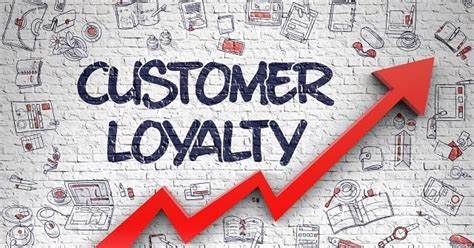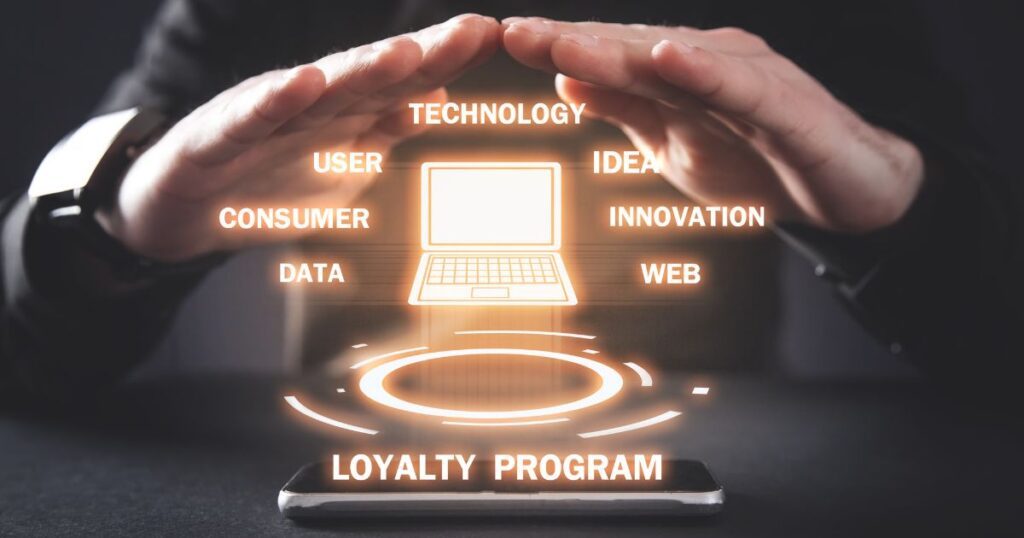In an increasingly competitive market, businesses are continuously seeking effective strategies to retain customers and enhance loyalty. One of the most successful approaches is the implementation of loyalty programs and customer rewards. With the rise of mobile technology, app development has become a powerful tool for executing these programs. Here are the key benefits of app development for loyalty programs and customer rewards.

Table of Contents
Toggle1. Enhanced User Experience
A well-designed mobile app offers a seamless and user-friendly interface for customers to engage with loyalty programs. Users can easily access their rewards, check points, and redeem offers, creating a convenient experience that encourages participation.
Example:
Starbucks’ app allows users to view their rewards balance, order ahead, and earn points for purchases, enhancing the overall user experience and encouraging frequent visits.
2. Personalized Rewards and Offers
App development allows businesses to gather data on customer preferences and behaviors. This data can be utilized to create personalized rewards and targeted offers, making customers feel valued and understood. Personalization increases the likelihood of customers engaging with the loyalty program.
Example:
Amazon’s Prime program offers tailored recommendations and exclusive deals based on users’ purchasing history, enhancing the relevance of the rewards offered.
3. Real-Time Notifications
Mobile apps enable businesses to send push notifications to inform users about new rewards, exclusive promotions, or points expiration. These real-time updates keep customers engaged and encourage them to take action, such as making a purchase or redeeming rewards.
Example:
Retailers can notify customers via the app about flash sales or bonus points for a limited time, driving immediate engagement and sales.
4. Gamification Elements
Incorporating gamification into loyalty programs can make them more engaging and fun for users. Features like challenges, badges, and leaderboards can motivate customers to participate actively in the program and compete with friends.
Example:
Fitness apps often reward users with badges for reaching milestones, encouraging them to engage consistently and fostering a sense of accomplishment.
5. Improved Customer Retention
Loyalty programs incentivize repeat purchases, leading to improved customer retention. By developing an app that effectively manages these programs, businesses can create a streamlined experience that keeps customers coming back for more.
Example:
A restaurant app that rewards customers with points for each visit can encourage regular dining and foster long-term loyalty.
6. Ease of Redemption
Mobile apps simplify the process of redeeming rewards. Customers can easily view available rewards and redeem them directly through the app without the hassle of physical cards or coupons. This convenience enhances customer satisfaction and encourages participation.
Example:
Beauty brands often allow customers to redeem loyalty points for discounts or free products directly through the app, streamlining the process and encouraging continued engagement.
7. Increased Customer Engagement
Apps provide businesses with a platform to engage customers beyond transactions. By integrating loyalty programs within an app, brands can encourage users to interact through reviews, feedback, or social sharing, fostering a sense of community and connection.
Example:
A travel app might encourage users to share their travel experiences and tips, creating a community around the brand while enhancing engagement with the loyalty program.
8. Valuable Insights and Analytics
App development allows businesses to collect and analyze data on customer behaviors and preferences. This insight can inform marketing strategies, product offerings, and loyalty program adjustments, ensuring that the program remains relevant and effective.
Example:
A clothing retailer can analyze which rewards are most popular among customers, allowing them to tailor future promotions and improve customer satisfaction.
9. Cost-Effective Marketing
A mobile app acts as a direct marketing channel for loyalty programs, reducing reliance on traditional advertising methods. Businesses can promote rewards and programs directly to users, maximizing the return on investment.
Example:
Restaurants can use their apps to promote loyalty programs and exclusive offers, cutting marketing costs while driving engagement and sales.
10. Building Brand Loyalty and Advocacy
A successful loyalty program can turn satisfied customers into brand advocates. When customers feel valued and rewarded, they are more likely to share their positive experiences with others, leading to organic growth and increased brand recognition.
Example:
A coffee shop that offers rewards for referrals can motivate loyal customers to spread the word, driving new business through word-of-mouth marketing.
Conclusion
App development offers significant benefits for loyalty programs and customer rewards. By enhancing user experience, enabling personalized offers, and simplifying reward redemption, businesses can create engaging programs that foster customer loyalty and retention. In a competitive landscape, investing in mobile app development is essential for brands looking to strengthen their relationship with customers and drive long-term success. By embracing technology, businesses can build more meaningful connections with their audience, ultimately leading to increased brand loyalty and advocacy.


No responses yet